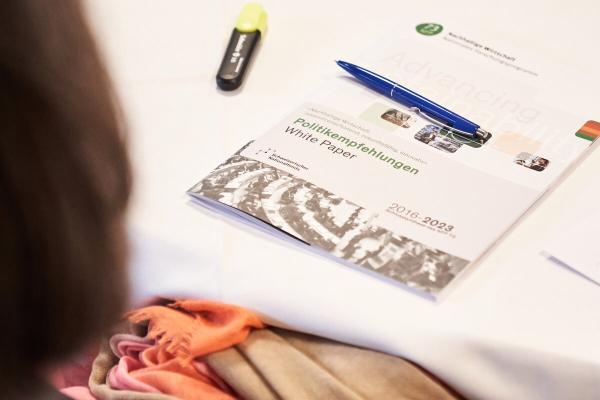NRP 73 “Advancing Sustainability” White Paper
04.07.2023
A sustainable economy: Swiss research findings show the way forward.
By effectively combining innovation, cooperation and diverse measures, we can create a sustainable economy that protects nature and the environment.
To achieve this, government agencies have a range of political tools at their disposal, including regulatory instruments such as prohibitive and prescriptive policies, market-based instruments such as taxes and fees, and behavioural interventions such as incentives and provision of information. The key is to combine instruments and measures in an effective way.
These are some of the conclusions drawn by researchers working on NRP 73. They are set out in the White Paper along with policy recommendations for a sustainable economy centred around five priority areas: Food Production and Nutrition, Circular Economy, Building and Construction, Sustainable Behaviour and Consumption, and Forest Ecosystems. The White Paper’s recommendations are aimed at both political decision makers and the private sector.
In the food and agricultural sector, the researchers recommend promoting digital technologies and shifting agricultural subsidies to eco-efficient and environmentally friendly (e.g. plant-based) production. When developing trade measures, the government should take both an enabling and a disabling approach to promote market access for products with high sustainability value and inhibit harmful products and practices.
The White Paper calls for incentives to be introduced in order to achieve climate-neutral, resource-efficient construction and housing by 2050. Key drivers will be the use of renewable energies in buildings and increased use of secondary and environmentally friendly materials such as wood. It will also be necessary to increase acceptance of smaller living spaces, particularly in the over-50 age group. This would be achieved by promoting modular, adaptable housing that can be tailored to individual needs (depending on age, physical disabilities, etc.).
These examples, taken from a range of research areas, show that all stakeholders must change their mindsets in order to promote innovative technologies on both the manufacturer and consumer side. Politicians must facilitate this process by ensuring transparency and encouraging knowledge sharing between and within different sectors.
